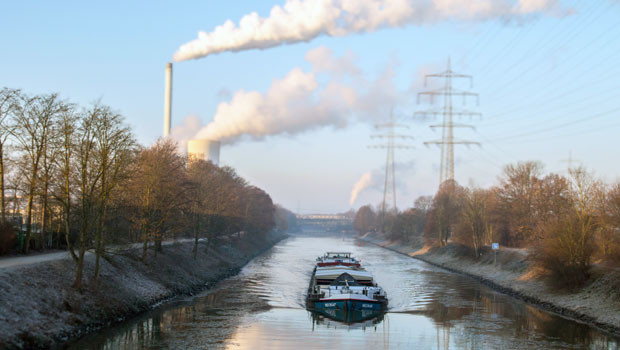Eurozone PMIs improve but economy 'stuck in the mud'

The downturn across the eurozone's manufacturing and services sectors eased more than expected in November, data from S&P Global and Hamburg Commercial Bank (HCOB) revealed on Thursday, but the economy still looks set to enter a technical recession.
The composite purchasing managers' index (PMI) for the single-currency region rose to a two-month high of 47.1, up from 46.5 in October. This was better than the consensus estimate of 46.9 but still firmly below the 50-point level which separates growth from contraction, showing the business activity in the region was still falling.
The eurozone services PMI improved to 48.2 from 47.8, slightly ahead of the 48.1 estimate, while the manufacturing PMI rose to 43.8 from 43.1, above the 43.4 forecast. Nevertheless, manufacturing output was down for the eight month straight, while services decreased for the fourth successive month.
"The overall reduction in business activity was again mainly a symptom of falling new orders. As has been the case in each month since June, companies in the eurozone reported a decline in new business. The latest reduction was marked, but the softest in four months amid weaker falls in both manufacturing and services," the survey said.
Commenting on the data, HCOB's chief economist Cyrus de la Rubia said the eurozone economy is "stuck in the mud".
"Over the last four to five months, the manufacturing and services sectors have both been experiencing a relatively constant contraction pace. Considering the flash PMI numbers for November in our nowcast model indicates the potential for a second consecutive quarter of shrinking GDP. This would align with the commonly accepted criterion for a technical recession," de la Rubia said.
Meanwhile, data from the region's two largest economies, France and Germany, painted a mixed picture. The German composite PMI rose to 47.1 from 45.9, beating the 46.5 forecast, with both the services and manufacturing gauges improving month-on-month, though manufacturing remains firmly in decline rising to just 42.3. In France, the composite PMI weakened to 44.5 from 44.6, surprising analysts who had expected a slight tick-up to 45.0, as both the services and manufacturing indices disappointed.
"The top two economies of the Eurozone find themselves in the grip of considerable weakness, with a slight advantage favouring Germany in November," HCOB's de la Rubia said.
"Signs of improvement emerge as the composite index in Germany increased, contrasting with a weakening trend in France. However, challenges loom for Germany as it struggles to deliver on public investments, following the constitutional court's insistence on complying with the debt brake, potentially relegating Germany to the back seat in 2024.”